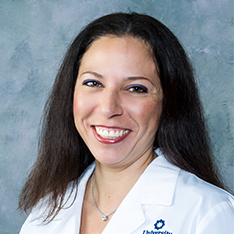Want to stay strong and healthy as you get older? Believe it or not, healthy aging is possible!
For many of us, getting older is associated with being frail and getting sicker more often. That doesn’t have to be the case, though. No matter what your age, you can take steps to protect your health now and in the future.
If you’re reading this and you’re in your 30s or 40s, the habits you build now will play a key role in your health later in life. So, don’t skip over this article! Read up on steps you can take to get healthy and stay that way.
Tips to Maintain Good Health as You Age
What’s the secret to healthy aging? Healthy aging requires taking proactive steps to protect your health and prevent disease.
If you’re wondering how to do that, consider this your user’s guide to good health. Start with these basics.
Build a relationship with a primary care provider
Your primary care provider, or PCP, plays a key role in keeping you healthy, particularly as you get older. During regular checkups with your provider, you can get a good look at your current health, as well as ways you can improve your health and wellness moving forward.
Your provider can also recommend age-appropriate screenings and vaccinations, as well as refer you to any specialists you may need.
Stay up to date on screenings
When your provider recommends you have a screening test done, put it on the books! These preventive tools can help you stay healthy in the short-term and in the long-term.
Your PCP can suggest a screening schedule for you based on your individual risk factors, but there are some general guidelines for those at average risk.
Preventive health screenings
- Women should begin getting mammograms at age 40
- Men should start prostate cancer screening around age 50
- Men and women should be screened for colorectal cancer beginning at age 45 until age 75
- Men and women should get annual skin cancer screenings
- Menopausal women age 65 and older should have bone density scans done for osteoporosis
- Heavy smokers (one pack of cigarettes a day or more) should ask about lung cancer screenings and our smoking cessation program
Get a shot of good health
Vaccines aren’t just for kids! They are every bit as important for older adults, too. The Centers for Disease Control and Prevention recommends an annual flu shot for everyone age 6 months and older, so put that on your calendar for September or October.
You should also stay updated on the COVID-19 vaccine as new versions are released. Talk with your provider about these vaccines:
- Shingles vaccine (for adults 50 and older)
- Hepatitis B vaccine
- MMR vaccine
- Pneumonia vaccine (for adults age 65 and older)
- RSV vaccine (for adults age 60 and older)
University Health primary care providers and pharmacies can give these immunizations. Ask your doctor for more information.
Keep moving
Experts recommend getting at least 150 minutes of moderate physical activity each week. That’s about 20 minutes per day of an activity such as brisk walking or swimming. For overall good health, you should also include strength training and exercises that improve your balance, like tai chi.
Find ideas for indoor activities as the weather starts to heat up in South Texas.
Exercise your brain
Keep your brain healthy by making it work! Make a habit of doing puzzles, solving riddles, playing games and even performing everyday activities in a new way.
Anything that requires you to think will help boost your cognitive health, a key to healthy aging.
Stay connected with others
Did you know that social isolation and loneliness are as dangerous for health as smoking in some cases? As you get older, build new relationships and work to maintain old ones.
Laughing with friends and loved ones has benefits for cardiovascular and mental health, too.
Eat the rainbow
As we get older, our appetites tend to diminish. Make sure you’re still getting all the nutrients you need by filling your plate with plenty of fruits and veggies.
Choosing produce in a variety of colors can help ensure you’re getting the full range of vitamins and minerals, plus an added dose of antioxidants.
Primary Care at University Health
Looking for other ways to give your health a boost? Talk with your primary care provider about your health and your risk factors to get personalized guidance about how you can stay healthy. Find a primary care provider here.




